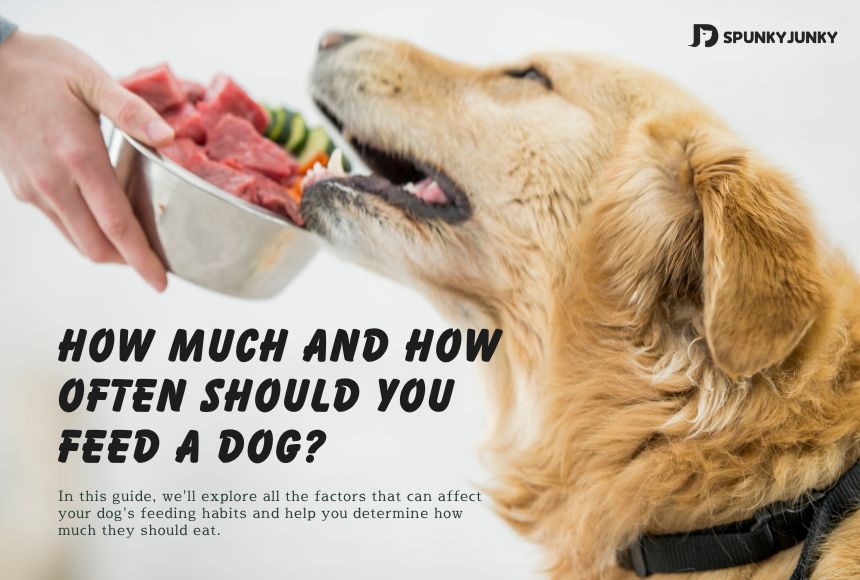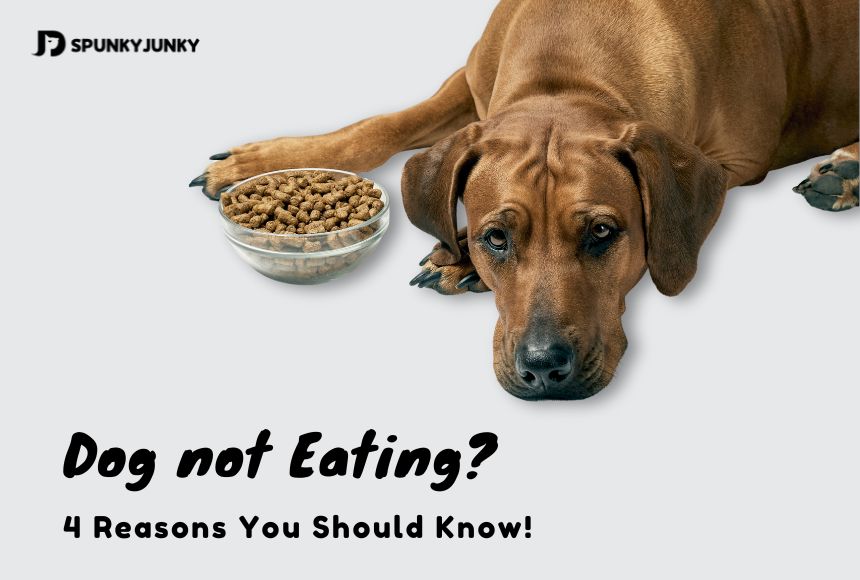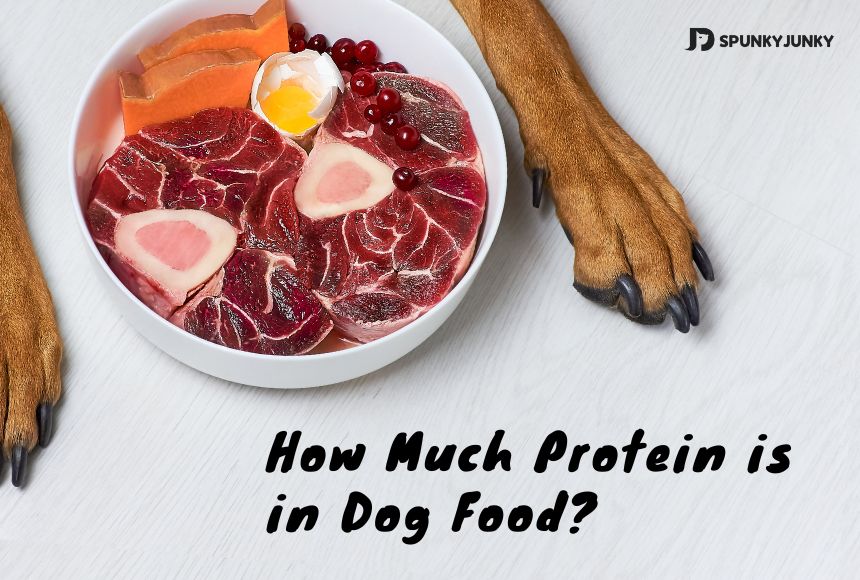Are you curious about how to ensure your dog gets the right amount of food?
Knowing "how often should you feed a dog" and "what time should i feed my dog" is essential for their health and happiness.
In this guide, we'll explore all the factors that can affect your dog's feeding habits and help you determine the best time to feed dog and how much they should eat. By creating a custom feeding plan tailored to your pup's age, breed, size, and activity level, you can keep your dog happy and healthy with proper feeding.
Don't miss out on the secrets to a well-fed and content canine companion!
What Factors Impact How Often Should You Feed a Dog?
What affects how often should you feed a dog? When deciding how often to feed your dog, there are a few important things to consider.

● Size and Age
One of the key factors to consider when determining how much to feed your dog is their size and age. Just like humans, the nutritional requirements of dogs vary depending on their life stage. Puppies and cats, for example, need more calories because they grow quickly. Adult and older dogs have different metabolism needs. Generally, smaller dogs tend to have faster metabolisms and may need smaller amounts, while larger dogs may need bigger meals.
● Activity Level
Does your dog have the energy of a marathon runner or the laziness of a couch potato? Like humans, very active dogs burn more calories and need more food to fuel their adventures. On the other hand, dogs that like to sleep all day may need smaller amounts to avoid getting too fat. It's important to balance meeting their energy requirements and preventing obesity-related health issues.
● Breed and Genetics
Believe it or not, your dog's breed and genetics can influence their food intake. Some species are more prone to certain health conditions, such as obesity or gastrointestinal issues. For instance, like the Corgi, they are predisposed to weight gain and may require carefully controlled portion sizes.
● Health and Medical Conditions
Like humans, dogs may have unique health conditions requiring special dietary considerations. Diabetes, kidney disease, or allergies can significantly impact your dog's food intake. Your vet is essential when figuring out what your dog should eat and how much they should eat.
How Often Should You Feed a Dog?
"How often should you feed a dog? "This is a common problem for many dog owners, and it is very important to find the right balance of food for your dog.
Generally, the best time to feed most adult dogs is twice daily. This will ensure proper digestion for your dog and a steady energy supply throughout the day. Puppies have frequent energy needs and may need small cups of food three to four times daily to support growth and development.
How Much Dry Food Should Be Put in Dog Bowl?
You already know how often should you feed a dog. Now, let's talk about how much food to feed your dog each meal. The amount of dry dog food depends roughly on the dog's weight. If your dog has been exercising a lot, you can increase the amount appropriately.

Adjusting serving sizes to your dog's specific needs, activity level, and overall body condition is important. Regularly monitoring your dog's weight and consulting with your veterinarian can help ensure you provide the right amount of food for optimal health.
What Time Should I Feed My Dog?
"What time should I feed my dog?" The answer may vary based on your dog's needs and your schedule.
First, divide your dog's meals into regular, predictable times. Regular meal times for dogs can help them anticipate and prepare meals. Generally speaking, it is recommended to feed once in the morning and the evening, with an interval of about 8-12 hours between meals.
So, "what time should I feed my dog?" you ask? Consider your schedule when determining specific meal times. If your routine is consistent, align your dog's meal times with your own. This can create a sense of companionship and structure for you and your dog.
Also, keep your dog's activity level in mind. If your dog is more active in the morning or enjoys physical activities such as walks or plays, giving them an energy boost may be helpful after exercise.
Likewise, feeding a few hours before evening activities can prevent discomfort or bloating during exercise.
Finding the right feeding schedule ultimately depends on your dog's needs and preferences. Observing your dog's behavior, apdogite, and overall health is crucial to determine what works best for them. Remember that consistency, regularity, and consideration of your dog's activity level are key factors in determining the best feeding time. By establishing daily routines that work for you and your furry companion, you can give them the nutrients they need at the right times to promote their overall health and well-being.
FAQ about How Often Should You Feed a Dog
1. How Do I Know If My Dog Is Hungry?
Knowing if your dog is hungry is very important to caring for them. When dogs want food, they have their way of expressing it. Here are some signs to look out for:
● Be more food-focused: If your dog starts sniffing around the kitchen or watching you closely while you prepare meals, it means they're hungry.
● Noise or ask for food: Dogs may whine or bark to tell you they're hungry. They may also try to get your attention by clawing at you or sitting near a food bowl.
● Restlessness or hyperactivity: When dogs are hungry, they may appear more restless. They may move back and forth or become more active to indicate that they want to eat.
● Different behavior or low energy: If your dog suddenly becomes less playful or does not want to do their usual activities, it could mean they are hungry. They may not have enough energy because they haven't eaten.
2. Why Is My Dog Always Hungry?
Do you know "why is my dog always hungry?" This is not too rare a problem. There are four reasons:
● Craving Nutrients: Dogs need a balanced diet with all the right nutrients. If their food is insufficient to meet their needs, they may feel hungry all the Time.
● Not enough food: The amount of food you give your dog may not satisfy their hunger. Give your dog more food each meal and see if it improves, or talk to your veterinarian.
● Health Issues: Dogs may develop health issues that cause them to feel hungry all the Time. It could be diabetes or another medical condition. If you think your dog may be sick, it's best to take them to the vet for a checkup.
● Boredom or Habit: Dogs getting bored can cause them to display hunger behavior even when they are not hungry. Keeping your dog active with toys, games, and exercise can help keep them entertained and focus less on food.
3. How Do I Know My Dog Is Eating Enough?
● Energy level: A happy and active dog usually means they're eating enough. If your dog has lots of energy to play and run around, it's a good sign.
● Weight: Keep an eye on your dog's weight. If they're staying a healthy size and not getting too skinny or too chubby, it means they're eating the right amount.
● Apdogite: Most dogs love their food and get excited at mealtimes. If your dog eagerly eats their meals and looks forward to eating, it's a good sign they're eating enough.
● Bathroom habits: Dogs with healthy apdogites usually have regular bathroom habits. If your dog is pooping regularly and their poop looks normal, it's a positive sign.
● Coat and overall appearance: A well-fed dog will have a shiny coat and look healthy overall. If your dog's fur is shiny and they have bright eyes, it means they're eating well.
Final Thoughts
That's it, young animal lovers! Now you know the best time to feed dog throughout the day.
By understanding your dog's age, breed, size, and activity level, you can determine how often should you feed a dog and what time should i feed my dog. Remember, your dog relies on you to provide them with the proper nourishment.
So, the next time you see your dog wagging their tail and eagerly waiting for mealtime, you'll know exactly what to do! For more valuable insights and helpful tips on caring for your four-legged buddy, don't forget to visit our blog.
As a responsible dog owner, cherish every moment and enjoy the wonderful journey with your dog!






